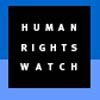
The Palestinian Authority (PA) has failed to establish an effective framework to respond to violence against women and girls, Human Rights Watch said in a report released today. Despite the current political and economic crisis, there are steps that the PA can and should take to address these abuses as a priority issue within its security agenda. The 101-page report, “A Question of Security: Violence Against Palestinian Women and Girls,” based on field research conducted in the West Bank and Gaza in November 2005 and early 2006, documents dozens of cases of violence. Read more about Report: Authorities Must Address Violence against Women and Girls
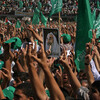
Human Rights Watch called today on the leaders of Palestinian factions and Palestinian government officials to bring an immediate end to the lawlessness and vigilante violence that has plagued the Occupied Palestinian Territories and to hold the perpetrators of this violence accountable. Eleven Palestinians were killed and more than 100 injured, mostly civilians, in the unrest on Sunday and Monday. Sporadic clashes and attacks on government institutions have continued during the week, with reports that three masked men shot dead a local Hamas leader as he left a mosque in Qalqilya on Wednesday. Read more about Factions Must Stop Endangering Civilians
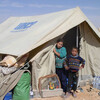
Shi’a armed groups have threatened to kill Palestinian refugees living in Baghdad if they do not leave Iraq within 72 hours, Human Rights Watch said today. Human Rights Watch urged the Iraqi government and the Multi-National Forces to investigate these threats and provide greater security to Palestinians in Iraq. A new leaflet obtained by Human Rights Watch and bearing the name of the Al-Bayt Revenge Brigade Rapid Response Units states that “there is no place for Palestinians in the Iraq of Ali, Hassan, and Hussain.” The names refer to three revered Shi’a imams; in contrast, virtually all Palestinians are Sunni Muslim. Read more about Palestinian Refugees Targeted With Death Threats in Iraq
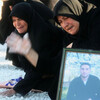
The Israeli government committee that will investigate the government’s handling of the recent war in Lebanon should also examine the decisions and policies that led to the large number of Lebanese civilian casualties, Human Rights Watch said today. In a report issued on August 3, 2006, Human Rights Watch documented Israeli forces’ systematic failure to distinguish between combatants and civilians as required by international humanitarian law. Subsequent Human Rights Watch reporting demonstrated a similar pattern in Israel’s use of cluster munitions. Read more about Israel: Government Committee Should Probe Lebanon Laws of War Violations
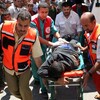
Israeli security forces launched attacks that harmed Palestinian medical emergency personnel and damaged ambulances on at least six different occasions in the Gaza Strip between May 30 and July 20, Human Rights Watch said today. Five of the incidents occurred during Israel’s military operations in Gaza that began on June 28, and three of them during the IDF military operation around the Maghazi Refugee Camp that began on July 18. In all of the incidents, the emergency medical personnel said they were responding to Palestinian casualties caused by earlier military activity but had waited for IDF shooting or shelling to stop before attempting to recover casualties. Read more about Human Rights Watch: Don't Fire on Gaza Medics
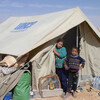
Amid widespread sectarian violence in Iraq, Palestinian refugees in Iraq face particularly grave security threats, including targeted killings by mostly Shi’a militant groups and harassment by the Iraqi government, Human Rights Watch said in a report released today. Countries in the region such as Jordan and Syria must open their borders to Iraqi Palestinians at risk, and the international community must urgently respond to their plight by providing financial assistance to the host countries and third-country resettlement opportunities on a humanitarian basis. Read more about Palestinians in Iraq under attack, but unable to flee
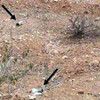
NABATIYEH — United Nations deminers beginning emergency survey and clearance work in the south of Lebanon have identified 10 locations where Israel used artillery-delivered cluster munitions during the recent hostilities, Human Rights Watch reported today. Human Rights Watch researchers in Lebanon have inspected two of those sites in the village of Kfar Roummane. Dangerous unexploded submunitions, duds that fail to detonate on impact but are still live and at risk of exploding, are present in areas of Nabatiyeh, Tabnine and Beit Yahoun, as well as areas adjacent to the 3km road connecting Tabnine and Beit Yahoun, U.N. demining officials said. Read more about Israeli Cluster Munitions Threaten Civilians
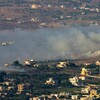
In its written statement submitted to the second special session of the Human Rights Council, Human Rights Watch states that the continuing toll of the conflict between Israel and Hezbollah is enormous and warrants the attention of this special session of the Human Rights Council: hundreds of civilians, many of them children, have been killed, essential infrastructure has been destroyed, and millions of lives have been disrupted. Serious violations of international humanitarian law (IHL) have been committed by both Israel and Hezbollah. Read more about "Israel and Hezbollah must stop using the excuse of the other's misconduct for their own abuses"
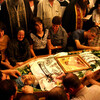
Hezbollah must immediately stop firing rockets into civilian areas in Israel, Human Rights Watch said today. Entering the fourth week of attacks, such rockets have claimed 30 civilian lives, including six children, and wounded hundreds more. “Lobbing rockets blindly into civilian areas is without doubt a war crime,” said Kenneth Roth, executive director of Human Rights Watch.” Nothing can justify this assault on the most fundamental standards for sparing civilians the hazards of war.” Hezbollah claims that some of its attacks are aimed at military bases inside Israel, which are legitimate targets. Read more about Human Rights Watch: Hezbollah must end attacks on civilians

This report documents serious violations of international humanitarian law (the laws of war) by Israel Defense Forces (IDF) in Lebanon between July 12 and July 27, 2006, as well as the July 30 attack in Qana. During this period, the IDF killed an estimated 400 people, the vast majority of them civilians, and that number climbed to over 500 by the time this report went to print. The Israeli government claims it is taking all possible measures to minimize civilian harm, but the cases documented here reveal a systematic failure by the IDF to distinguish between combatants and civilians. Read more about Fatal strikes: Israel's indiscriminate attacks against civilians in Lebanon









